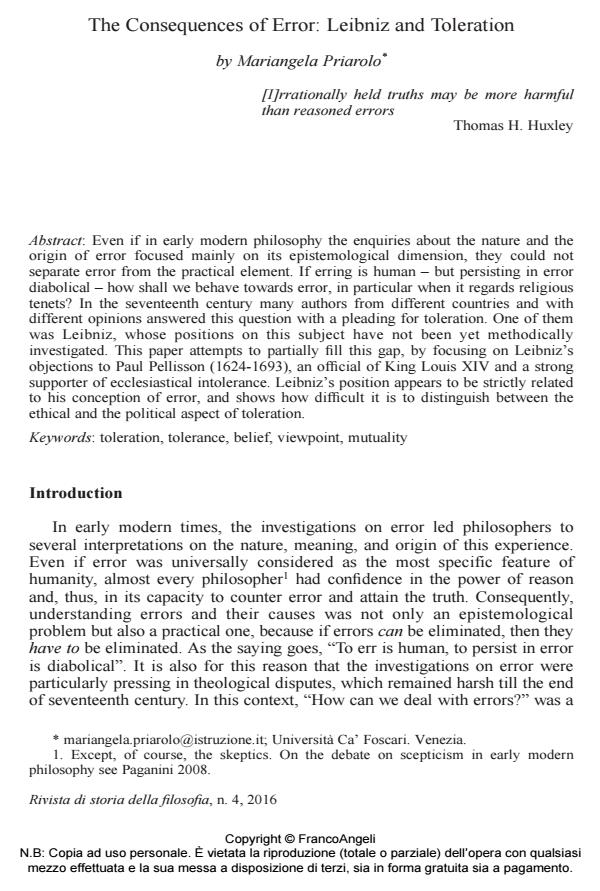The Consequences of Error: Leibniz and Toleration
Journal title RIVISTA DI STORIA DELLA FILOSOFIA
Author/s Mariangela Priarolo
Publishing Year 2016 Issue 2016/4
Language English Pages 0 P. 745-764 File size 71 KB
DOI 10.3280/SF2016-004012
DOI is like a bar code for intellectual property: to have more infomation
click here
Below, you can see the article first page
If you want to buy this article in PDF format, you can do it, following the instructions to buy download credits

FrancoAngeli is member of Publishers International Linking Association, Inc (PILA), a not-for-profit association which run the CrossRef service enabling links to and from online scholarly content.
Even if in early modern philosophy the enquiries about the nature and the origin of error focused mainly on its epistemological dimension, they could not separate error from the practical element. If erring is human - but persisting in error diabolical - how shall we behave towards error, in particular when it regards religious tenets? In the seventeenth century many authors from different countries and with different opinions answered this question with a pleading for toleration. One of them was Leibniz, whose positions on this subject have not been yet methodically investigated. This paper attempts to partially fill this gap, by focusing on Leibniz’s objections to Paul Pellisson (1624-1693), an official of King Louis XIV and a strong supporter of ecclesiastical intolerance. Leibniz’s position appears to be strictly related to his conception of error, and shows how difficult it is to distinguish between the ethical and the political aspect of toleration.
Keywords: Toleration, tolerance, belief, viewpoint, mutuality
Mariangela Priarolo, The Consequences of Error: Leibniz and Toleration in "RIVISTA DI STORIA DELLA FILOSOFIA" 4/2016, pp 745-764, DOI: 10.3280/SF2016-004012